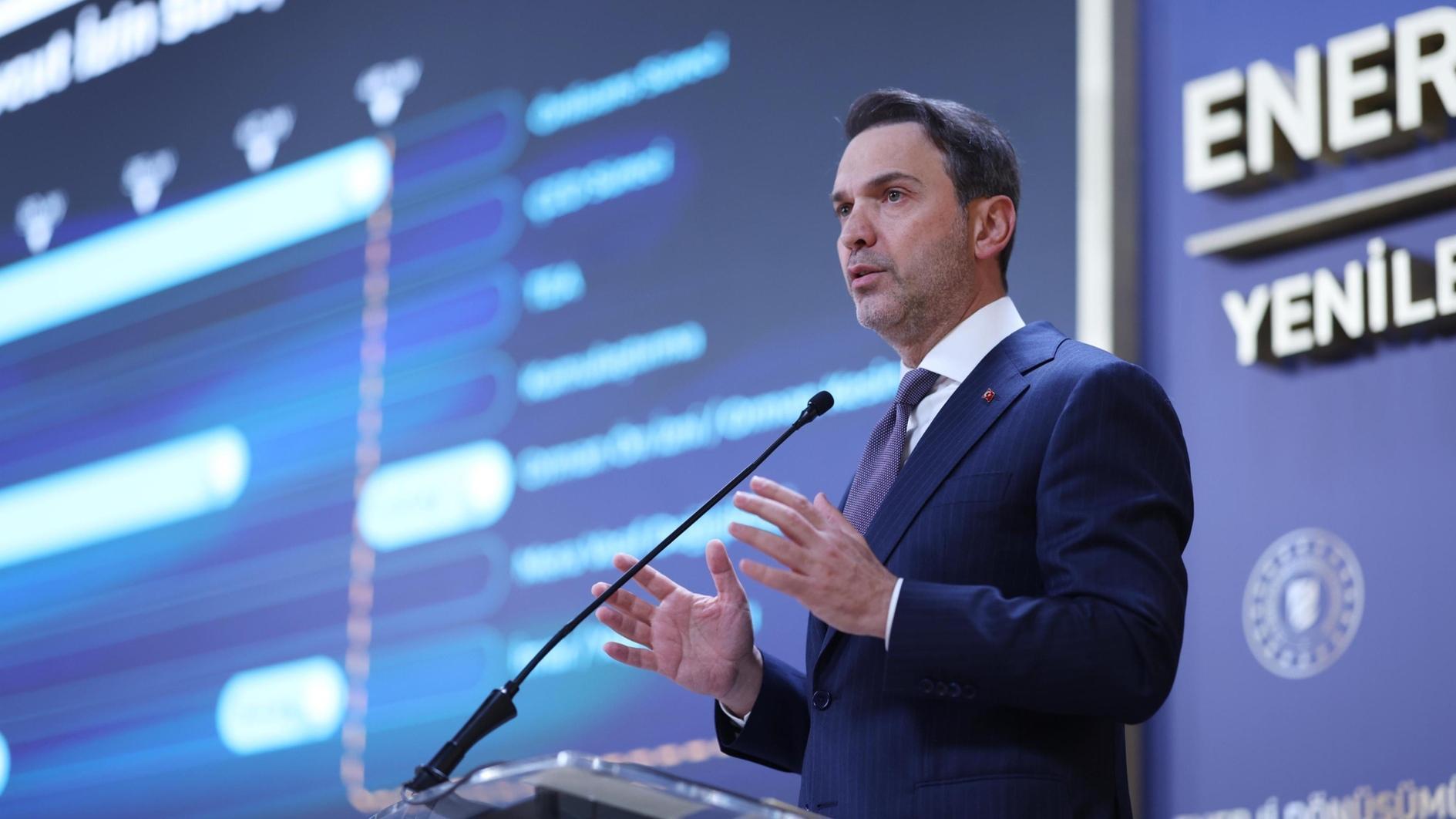
The share of renewables in Türkiye’s total electricity installed capacity reached 59 percent as of September, Energy and Natural Resources Minister Alparslan Bayraktar has said.
Türkiye aims to increase installed wind and solar capacity to 120,000 megawatts (MW) by 2035, requiring nearly $80 billion in investment, the minister said at the Energy Transformation-Renewable Energy 2035 meeting in Istanbul, bringing together key players in the energy sector.
In order to add 90,000 MW to the existing capacity, Bayraktar explained that the country needs to install 7,500-8,000 MW of renewable energy capacity each year.
"We are set to launch 90,000 MW of new renewable capacity, along with a new transmission grid, upgraded infrastructure, a new investment of approximately $108 billion and a new reform process," he said, outlining Türkiye's vision for energy transformation and renewable energy over the next 11 years.
“We believe that by working together with stakeholders, financial institutions and investors, we can achieve our goal of investing $80 billion in renewable energy,” Bayraktar added.
In 2023, Turkey's electricity consumption decreased by 0.2 percent year-on-year to 330.3 TWh and electricity generation decreased by 0.6 percent year-on-year to 326.3 TWh.
Last year, 36.3 percent of the country’s electricity generation came from coal, 21.4 percent from natural gas and 19.6 percent from hydraulic energy.
Wind and solar accounted for 10.4 percent and 5.7 percent of total electricity generation, respectively.
According to the National Energy Plan, electricity consumption is expected to reach 380.2 TWh in 2025, rise further to 455.3 TWh in 2030 and climb to 510.5 TWh in 2035.
When policymakers, investors, financial institutions, international organizations, national agencies and our suppliers each play their role, Türkiye will successfully meet these targets,” the minister said at the Istanbul event.
Bayraktar also explained that Türkiye's energy policies are driven by three key goals including security of supply, reducing foreign energy dependence and achieving net zero emissions by 2053.
Noting that Türkiye also aim to shorten the permit processes in renewable energy, which currently takes about 48 months, Bayraktar said, “We will reduce these 48 months to two years or less. In this way, these investments will be realized very quickly.”
Türkiye is on track to produce 9.1 million cubic meters of gas per day in the first quarter of 2025 via the Sakarya Gas Field in the Black Sea, meeting the needs of 4 million households, he added.